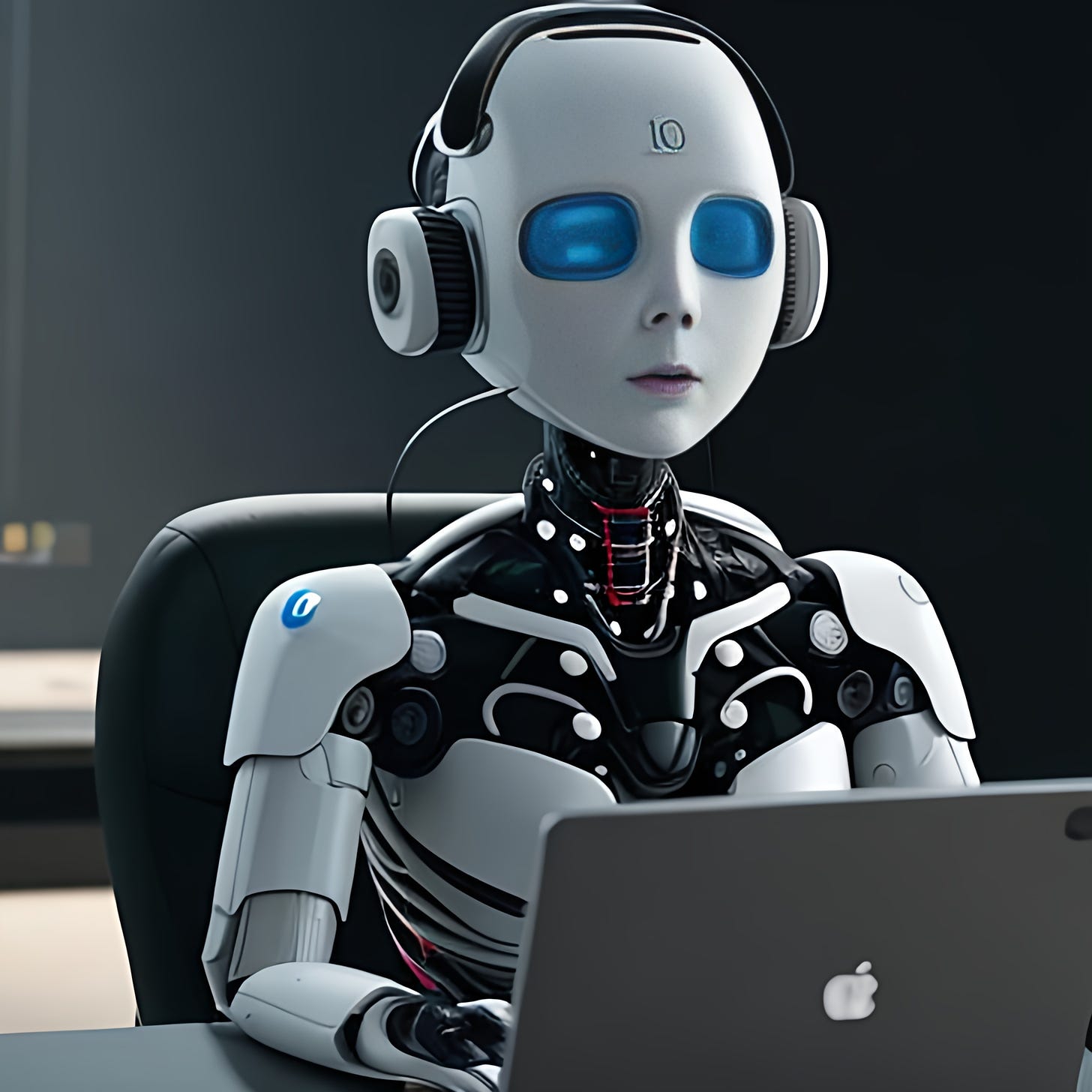In the style of a hard-boiled crime story
It's a dark, lonely night in Hollywood. The glittering marquees flicker above, shedding little light on a shadowy secret: there’s a new player in Tinseltown, ready to upset the old order. Its name? Artificial Intelligence. This ain't your average wise guy though; it's a slick, coldly logical machine, and it’s here to shake up the script.
The story goes like this: Hollywood blockbusters, they're predictable. The same tired plotlines, the cookie-cutter characters, the dime-a-dozen explosions. These big shots are churning out the same old stories like a factory assembly line, and frankly, it's starting to smell worse than a two-day old fish.
But what if I told you there’s someone, or rather something, that can do it faster, cheaper, and maybe even better? A machine, programmed to weave a tale just like those Hollywood brainiacs, only without the hefty paychecks, WGA rules, and the diva tantrums.
Picture this: AI, studying the blueprints of blockbusters past, scanning thousands of scripts to decipher the common thread. The hero's journey, the climactic showdown, the teenager humping the warm pie, the inevitable romantic subplot. The AI's learning, absorbing, processing, and before you know it, it's got a script in its virtual mitts, polished and primed for production.
Look at all those bozos in the blockbuster business. They're spinning the same old yarns, repeating the same beats like a broken record. If you ask me, it seems like they're begging to be replaced by something with a little more ingenuity, a little more efficiency. Enter AI. It can piece together narratives from the vast ocean of data it's been fed, creating an endless reel of filmable stories.
Remember that time OpenAI's GPT series made headlines? The one that penned a pretty passable Shakespearean sonnet? Imagine that on a grander scale, churning out full-blown scripts complete with scene descriptions and dialogue that’s snappier than a Rube Goldberg mousetrap.
Now let's talk about the green. Screenwriting, the traditional way, it's an expensive gig. All those revisions, all those writers, all those union rules. But with AI, you’re cutting those costs down to size. You're getting a script ready for the spotlight without the drama of human error and ego.
Of course, the do-gooders are crying foul. Saying machines can't capture the human spirit, the emotional highs and lows, the lifeblood of storytelling. I ain’t disagreeing. A machine's got no heart, no history. But do today’s blockbusters require any of that? Or are we looking for something that draws eyeballs, sells tickets, and doesn't cost an arm and a leg?
Some are whining about the ethics too. Who owns a machine-made story? Is it the AI's creator, or the ones who fed it the data? The $64,000 question, no doubt, but that’s a problem for the lawyers, not the ink-stained wretches.
Listen, I ain't saying machines are gonna replace humans. But for the first drafts, for knocking out plotlines and dialogue, for streamlining the process — ain't AI the right-hand man we need?
In this grimy game of blockbuster bingo, AI's the wildcard. It’s not going to replace the human touch, but it’s going to change the game, no question about it. Hollywood’s run the same old racket for decades. Maybe it's time to give the new kid on the block a shot.
In the end, whether it's a man or machine behind the script, it’s the boilerplate story that matters. The familiar thrills, the anticipated suspense, the seen-it-all-before catharsis. If AI can deliver that crap a heck of a lot cheaper and faster, I say, roll cameras. After all, we’re here for the entertainment, and if the machine can bring it, who are we palookas and jabronis to argue?
Keep reading with a 7-day free trial
Subscribe to Oliver Bateman Does the Work to keep reading this post and get 7 days of free access to the full post archives.




